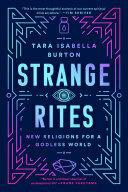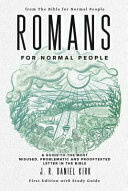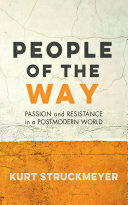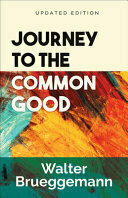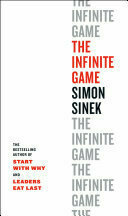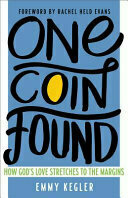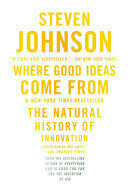Essays
Pugnosticating The 2024 Chicago Cubs
The Chicago Cubs have completed the 2024 Cactus League spring training “season” and will start the 2024 MLB season tomorrow at the Texas Rangers. As many questions exist about the 2024 team as did for the 2023 team, so it is hard for me to expect them to be too much better than last year. Will Greg Counsell as the new manager make a difference? Perhaps that is the main question going in to this season.
One cannot read much into what happens at spring training, although I attended spring training games in 2016, which is when the Cubs won the World Series, and have not attended a spring training game since nor have the Cubs returned to the World Series. Read in to that what you will.
Markets and Ecosystems
Based on what I’ve read so far, it seems to me the biggest challenge the DOJ has in its lawsuit against Apple is convincing a court that there is such a thing as a premium smartphone market. In my opinion what the DOJ really means by a “premium smartphone market” is an iPhone market, in fact I think DOJ would have been smart to actually call it the iPhone market.
What defines a market? From a traditional lense, one may say there is no such thing as an iPhone market. However, the iPhone is not just a product, it also includes the App Store and accessories like the Apple Watch that are exclusive to the iPhone. Apple and most of the tech industry refers to this as the Apple or iPhone ecosystem and that ecosystem functions in ways that most will recognize as a market. Apple clearly uses monopoly power in its control of the iPhone ecosystem.
If one accepts the iPhone ecosystem is a market then I think Apple most clearly has a monopoly. While I am not even close to being a lawyer, I would think the next step is to convince a court that the iPhone ecosystem/market is large enough to cause harm to a significant number of U.S. citizens to justify government action. Unlike in Europe, antitrust in the U.S. is about harm to consumers and not harm to competitors.
So, if I am right, I think the big question being raised by the DOJ is a question about whether a product ecosystem is a market. The product ecosystem is fundamental to Apple’s business model, and frankly many people benefit from that ecosystem. In some ways the issue of product ecosystems and antitrust has occurred before. At the time when phones were only landlines one could only buy a phone from AT&T and a DOJ lawsuit forced AT&T to allow consumers to buy phones from other manufacturers. I am sure at the time AT&T considered the phones as part of their product ecosystem and AT&T did claim security and quality reasons for why they should be the exclusive providers of phones.
Despite what Apple says, they will fight this suit because the App Store and exclusive accessories like the Apple Watch are competitive advantages. Both are big revenue streams and Apple takes actions to protect those revenue streams. Apple has stated this approach is a fundamental part of their business model.
Consequently another big question being raised here is, if a company makes a product that is a platform for selling other products, is the owner of that platform allowed to be the exclusive store front for those products and require a portion of each sale of that product? HP makes more money selling ink for their printers than in selling printers; Gillette makes money selling razor blades and practically gives away their shavers. Should a manufacturer of a computer platform be allowed to have an exclusive app store that is the only way for one to install apps on that platform? The EU has said no, now the United States is attempting to say the same thing.
To Be Disturbed By Ideas Is O.K.
From “The Problem with Defining Antisemitism” by the New Yorker
Stern tells this story in “The Conflict Over the Conflict,” a work that is unlikely to please partisans. The book makes the case for bridging differences and recognizing nuance. It also describes Israeli-Palestinian history as an “ideal subject” to teach at universities, precisely because it is so divisive. At the West End Temple, Stern reiterated this belief. “On college campuses, students have an absolute right to expect they’re not going to be harassed, they���re not going to be bullied,” he said. “But to be disturbed by ideas is O.K.: we want students to be disturbed by ideas and to figure out how to think about them.”
Site Changes
It started with a post that Manton Reece wrote about long form content publishing in a microblog format and before I knew it I had completely overhauled the appearance of this site. I wrote a reply to that post about my one wish for micro.blog is that it would not publish the full content of a titled post on the main page of the blog. In my opinion posts with titles are essays that are best published in full on their own page. I said that I would rather have a link to essays along with a lede.
Manton replied suggesting that I try the Tiny theme and that sent me down an unexpected rabbit hole of testing the theme and different fonts before deciding to apply that theme to this site. If you are a regular reader of this site you should have notice I made several changes, starting with the title of the site.
Before I go in to how I came to the new title for this site I want to acknowledge Matt Langford who developed the Tiny Theme for micro.blog. I’ve not crossed paths with Matt, but I appreciate his work in developing the theme and the associated summary plugin. Right now I am using the basic functionality of the theme but there are features that I plan to check out more in the future.
The post you are reading right now provides an example of what started me off trying Tiny Theme. If you came to this post via the main page of this blog you saw the title of the post followed by the first paragraph followed by a Read More button. I think not publishing the full, multi paragraph post enables the main page to maintain a “news feed” like appearance. I expect it to also make loading the site faster because the pages are smaller. To read the full titled post you can click either the title of the post or the Read More button.
Having changed the appearance of this site I felt it made sense to change the tagline and the title of the site. Rather than the tagline referring to me, I wanted it to refer to the theme of my writing and found that a sentence from the Thomas Merton quote on my home page did the job nicely. I then used Microsoft Co-Pilot to brainstorm titles that related to the tagline and settled on Routine Revelations.
So welcome to my new, old blog where I write posts and share information about my extraordinary ordinary routine revelations!
Smart Monitors On Faces
Despite reading more about the Apple Vision Pro, I have yet to warm up to the idea of strapping a headset on to my face, no matter the potential cost of the headset and the utility. I think back to the idea of one using notebook computers in meetings, many think that is rude or at the least too intrusive. While one can clearly take more detailed notes, there is a physical screen between oneself and other meeting participants. In this case tablets are more favorable because they can lie flat on table and be no more intrusive than a pad of paper.
While the Vision Pro does have a pass through mode that enables the wearer to see what is in front of them, it is obvious to others in the room that the wearer’s attention is not fully on them. Anything physically larger than regular glasses is going to send signals to others, just like the use of notebook computers in meetings and classrooms. Consequently in it’s current incarnation the Vision Pro is a very private device.
It’s true that over time the use of notebook computers has become more accepted and it happens now in nearly every meeting and probably every class in college, but that still doesn’t make it right. When Google first released Glass the debates about the social norms for their use started but never ended because the product really never gained acceptance, these social discussions, and probably laws, will need to restart. For example, I think it is worth serious discussion about whether one should ever be allowed to wear the Vision Pro on a plane, which is a place in which ones attention can mean life or death. Most expect Vision Pro to succeed mostly because it is from Apple, but even Apple is not immune to flops.
So, then, the question is at what price point and for what utility will the Vision Pro gain acceptance? Do you spend $1,000 or more on monitor on you desk? Some do, most do not. I think the price is going to have to be closer to $500 in order to generating real sales. I have no doubt that will happen, just like how 4K desktop monitors are affordable and thus dominant in sales. How long will it take for the price to come down, and might that be too long for the Vision Pro to gain acceptance? Money may be on Apple’s side, but we will see whether time is too.
Parting Ways With Evernote
Today I canceled my subscription and closed by account with Evernote, which most will think a trivial event. People stop using software all the time, except I’ve been using Evernote from the beginning that it first became available for Windows in 2008. In fact, I am pretty sure that I first used a beta version of the product perhaps as early as 2005. At the time it was introduced no company was really developing notetaking software, at least not for Windows. When first introduced the UI of EverNote had the form of a continual scroll of information “flagged” by date, in fact it could be my first experience with the newsfeed/stream UI now commonly used by social networking applications.
The closest resemblance EverNote had to any other product was the UI of the Newton OS that ran on Apple’s Newton Messagepad. The resemblance may have been intentional because EverNote was founded by Stepan Pachikov who with his company Paragraph International, lead the development of the handwriting recognition engine known as CalliGrapher, which was licensed by Apple for use with the Newton OS. EverNote’s resemblance to Newton definitely drew my attention to the product.
Pachikov brought Phil Libin onboard as CEO of Evernote (originally the product name had a capitalized N that was changed to lowercase by 2008) and Libin grew the company and the product into the well recognized, multi-platform product that most people know of it today. In my opinion what made Evernote attractive is that it centrally stored data (perhaps one of the first commercial client/server applications) that is accessible to client applications running on nearly every computing platform that I use. At a time when it was common to see applications that ran only on Mac or Windows, or iOS, Evernote ran any every single one of these platforms.
Of course, developing and then maintaining separate code bases for each platform is daunting, particularly if the application architecture was not explicitly developed for that use, and so over time bugs crept up that caused problems. The relatively fast growth of the product also lead to performance issues, and for some data loss. For me Evernote jumped the shark around 2013 when the company began licensing/selling products with Evernote branding, like socks, that had no relationship to the core product, while there were significant problems with the Evernote app. One year after Libin left Evernote the company stopped selling these products.
It might be said that Evernote began its path of decent soon after Libin left the company in 2015. Key developers started to leave the company and soon there seemed to be yearly rumors of the company going under. While many who I associated with stopped using it, by 2015 I had accumulated seven years of information in the application and I felt the yearly $60 subscription was worth my continued access to that information from all the devices I use. The Evernote web clipper had become my most valued tool of all the software I use and it is still the best browser web clipping application available particularly on mobile devices. Unlike most other apps, sharing to Evernote on iOS and Android captures the entire web page rather than just the link to the page.
So, despite the dismal outlook for the company and the app, I stayed committed to it, but last year it was acquired by Bending Spoons and they changed the subscription cost to $15 per month, which I decided was too expensive in light of what I pay in other software subscriptions. When the rumors of the demise of Evernote started appearing I began testing ways to export my information out of the application and import it into others. Two years ago I exported everything from Evernote to OneNote, which wasn’t perfect but good enough for me to find information should I need to. Last year I found I could also import my Evernote archive into Obsidian, which I completed last fall and from that point stopped storing new information in Evernote.
My yearly subscription with Evernote renews at the end of January, so my deadline to delete my data from Evernote and close my account was this past weekend. Deleting my notes was much more laborious than I would have preferred, as a deleted note is moved to Trash and then one has to empty the Trash in order to completely delete the note and I found that Trash emptying seemed to only handle about 100 notes or so at a time, particularly with the web application. The problem seems to be with the synchronization performance, even the web app syncs data with the browser local storage, and I suspect there is Javasript handling all of the API calls to tell Evernote’s servers to move and delete data.
I am obviously much more brand loyal than most other people, so it’s really a big deal for me personally to stop using a product after having used it for more than ten years. Obviously, my issue is not with the product itself but the subscription cost that most likely is driven by a decreasing number of subscribers. I do expect Evernote to eventually disappear within the next year or two. Going forward I am using Joplin to capture web clippings from Mac and Linux, tolerating the fact that sharing to Joplin with iPad only captures the link and not the web content. I have also started using Archivebox on my home network. I am using end to end encryption with Joplin and using OneDrive as the “hub” for storing/syncing the data in Joplin between my desktops and iPad. Unfortunately the Android version of Joplin does not synchronize well and I gave up even trying to use it on my Pixel 7a.
Football Fun
Yesterday was fun for me as a football fan. I am a life long Green Bay Packer fan and really enjoyed watching the Packers pummel the Dallas Cowboys. The enjoyment not so much because I dislike Dallas but more so because Packer’s performance was so unexpected. Jordan Love had a perfect passer rating in large part because the receivers caught every ball thrown their way. The offensive line did a fantastic job of opening up holes for Aaron Jones to run through, and the defensive secondary had two interceptions and made it hard on Dak and CeeDee. I don’t expect the Packers to have the same success in San Francisco, but they could make the game interesting. My respect for coach Matt LaFleur has gone up tremendously for how the term has performed.
Next came the night cap. I’ve lived in metro Detroit for more than half my life, and when Packers play the Lions, I am all cheesehead, otherwise I am rooting for the Lions to win. Those who have grown up a Lions fan have experienced more downs than ups, which I relate to as a Chicago Cubs fan. (Although my Packers were awful during my childhood and teen years during the 70s and 80s.) So, I really wanted to see the Lions win last night, and they hung on to do it, never trailing in their game. The Lions will have another game this season in Ford Field, and have a good chance to getting in the NFC Championship game.
I’ll just put it out there. If the Lions win and the Packers beat the 49ers then these two NFC North Division foes would play each other in Ford Field for the right to play in the Super Bowl. Possible, but not probable, but on any given day anything can happen.
Personal Computing Continues To Get Real
Back in 2011 when Apple announced the iPad I believed it marked the real beginning of the personal computing era rather than the beginning of the Post-PC Era as was being pronounced at the time. As I argued then, and think it is still the case, we have historically thought of a personal computer as a device that one person uses. In other words, “personal” meant one. My argument back then is that “personal” really should mean what everyone knows it to mean, which is computing specific to you, the user. I imagine personal computing as the mashup of hardware + software + Internet + intelligence.
Today I learned via manton about Rabbit Inc. and a mobile device and operating system it has introduced built around a Large Language Model and what the company calls a Large Action Model to provide a user interface based on natural language processing and execute actions rather than generate text and pictures. I don’t know whether the NLP works as well is demoed, but the demo at least shows exactly how I imagined how personal computing should work. Speech is our primary mode of interaction and typing is really abnormal and frankly unknown to the majority of people in the world.
I think the software is the most important part of what Rabbit Inc. has made, the purpose of the device is to prove the software’s functioning and capability. If it does perform as well as shown, I expect the company and product to be acquired by one of the big tech firms.
Intentional Trusting
This article in The Atlantic, We’ve Been Thinking About America’s Trust Collapse All Wrong by Jedediah Britton-Purdy is very good. Too bad it’s behind a paywall, but worth trying to read. Here is one of the many important points:
Another distinction between personal and political trust that we need to learn involves living with sharp moral disagreement. In our own lives, we may refuse to enter close and lasting relationships with people who, say, disagree with us about questions as fundamental as how we should raise our children or what gender roles mean in our family. (I don’t mean that this is necessarily the right approach, and we may lose something when we cut ourselves off from challenge in this way, but the decision is an intelligible one.) But politics is about coexistence with disagreement around issues as fundamental as these, such as abortion. If we treat moral disagreement as proof of moral badness and as a reason, effectively, to cut off civic as well as personal relationships, then politics is done. Politics is a relationship we cannot escape, for better or worse. We can poison it, though, and confusing it with personal relationships that we can refuse or leave is one way of poisoning it.
When Feeling Better Trumps Being Better
I am reading Jonathan Haidt’s article in The Atlantic, The Coddling of the American Mind, and I am wondering whether the hypersensitivity to emotional wellbeing Haidt describes can be somewhat attributed to our associating gun violence to mental illness over the last several decades. Mental illnesses are real but I think are diminished when we start tossing out the term as being the cause to all our ills. Perhaps it would not be an issue if we actually did something about mental illness, but I think we mostly talk about it. Our unwillingness to actually address problems and instead simply focus on symptoms is teaching generations of people that symptoms are actually the problems when they are not.
What Haidt does not address in the article is how hypercapitalism, which is the practice in the United States of prioritizing wealth over everything, contributes to the problem. We have many religions in the United States, but I think capitalism is the one that rules them all. The religion of capitalism preaches that there are to be no restraints on one’s ability to be wealthy and thus it teaches that the ends justify the means.
Manipulating emotions may be the number one tool of generating wealth in the United States. Marketing and advertising is emotional manipulation for the purpose of selling products, the buying of which produces wealth. Advertising is all about coveting that which another has and thus has existed ever since humans became aware of their surroundings. Technology continually optimizes advertising and today’s targeted and viral ads are extremely effective at making us covet.
No popular church nor religion in the United States truly teaches the dangers of wealth. Who preaches and teaches enough is better than more? Heck, the “ministers” of many of the most well known churches in the United States are themselves extremely wealthy. Yet, Christianity claims association to Jesus who plainly taught of these dangers. The consequence is that we live in a society that actually encourages the practice of one profiting off the suffering of another.
Children are immersed practically from the moment of birth in emotions, and our religions teach them how to feel better. The pursuit of happiness is a treadmill for the more and the idea that there is enough for all to be happy is considered un-American. We are frogs floating in warm pot of water and the temperature is increasing toward death.
My Praise for Micro.blog
The posts that I write here are hosted on a platform known as micro.blog that hosts my feed (in RSS format) and a network of feeds to which members of the platform contribute. The feeds are rendered in a timeline format accessible via web and mobile applications developed and maintained by the platform founder Manton Reece and his colleagues. Micro.blog hosts each member’s feeds rendered in a web site that can be accessed by a domain name owned by the member, such as mine at https://frankmcpherson.blog. The feeds are open such that other people like Loura can write their own web applications to render the feeds in a timeline format and make it usable by other members. Alternate mobile applications are also available. Finally, one can write and publish posts from alternate applications like Drummer, which I am currently using. In summary, micro.blog is an example of a successful, open platform built and maintained by a handful of people, enhanced by a community of members, and is affordable.
Another Chicago Cubs Scapegoat
Whenever a general manager/front office of a professional sports team fires a good coach, or in baseball manager, I am suspicious of the true motivations behind the decision. I tend to think such decisions are often deflections of attention away from the front office. Today the Chicago Cubs dismissed David Ross and hired Gregg Counsell and many will note similarities in this decision with how they dismissed Ricky Renteria in 2014 to hire Joe Maddon who unexpectedly become available. I personally do not think the two situations are the same.
Renteria had been on the job for only one year, had not really proven himself as a manager, and did not have any history with the Cubs. Ross is one of the heros of the 2016 world championship team and had taken the Cubs to the playoffs as a manager. Counsell is a good manager and had taken the Brewers to the playoffs five of his six seasons with them, but did not have success in the playoffs. I do not think Counsell is as good a manager today as Joe Maddon was in 2014.
More important, David Ross was not the reason why the Cubs did not make the playoffs this season. The Cubs did not make the playoffs because of a depleted bullpen and in my opinion bad offseason acquisitions that were eventually released during the season, and those decisions were made by the general manager and president of baseball operations.
Ricketts might have bought Hoyer’s argument that jumping on the opportunity to get Counsell is similar to when Epstein jumped on the opportunity to get Maddon, but if Ricketts really wants to address the root cause for why Cubs did not meet expectations this season he ought to be questioning the decisions made by Hoyer and hold him accountable. If the Cubs have decided to completely move on from 2016 that means moving on from Jed Hoyer. In my opinion, the Cubs released the wrong person from their team.
Oh, and by the way, if the Cubs make this move of stabbing one of their own in the back, they darn well better be aggressive at signing free agents during the off season.
Just Looking In The Rear View Mirror
From the perspective of my life time of 1966 to present, I think the most consequential change on society has been the rise of conservatism. Today many people claim themselves to be conservative while not being clear what they mean. Wikipedia defines conservatism as “a cultural, social, and political philosophy that seeks to promote and to preserve traditional institutions, customs, and values.” How conservatism is practiced varies among societies.
At the risk of over simplifying, I think Americans who claim to be conservatives mean they are for smaller government, translated to mean lower taxes, lower government spending, and less government involvement in their daily lives. Recently I think the label has simplified to just mean, not liberal, or “Trump supporter.” While some want simply to be left alone and have more agency over their lives, many want to return to some time in the past, such as during the 1950s, when they believed life was better.
I believe conservatives and liberals have an unhealthy obsession with the past. Conservatives want to return to the past, liberals want to correct the past and it seems neither understand that the value of history is to learn from the past for the purpose of not repeating mistakes in the future. I think it is ironic that conservatives and liberals are seen as polar opposites while in reality both are obsessed with the past and neither side has a healthy perspective on progress. In short, you can’t really make progress when you are constantly looking in the rear view mirror.
Don’t believe me? Can you think of any area of politics that is not about the past? From the age of our government leaders, to how the U.S. constitution is currently used, to why there are wars, to why we cannot decrease the number of mass shootings, work to improve the climate and become healthier, every one of these are only really viewed from the perspective of the past. If most people agree that we should do something about these things, why can’t we?
The current obsession with polarization means more interest is in the argument rather than progress. I am not sure either side really wants progress because whenever either one has the ability to make progress disagreements within their ranks prevents it from happening. Polarization is focused on getting one’s way and beating the other and lost is any amount progress that in past times was born out of debate between the two points of view.
It’s one thing to have different ideas for how progress is to be made, or even what is progress, and another to not want to progress at all. Right now the United States has no desire for progress, we see this in how everything of significance is being handled in the world. I think how we got here is born out of a belief, more shared than we like to realize, that humanity cannot really improve itself. Too many now think the world cannot be better for future generations so it’s not even worth trying. So long American dream. No wonder why Gen Z is pissed of at all older generations and considers everything they say as b.s., and we are seeing the consequences playing out.
Consequently, why bother with empathy? I don’t need to consider how events affect you, the other, when I know how they affect me. Without empathy there is no way to love my neighbor, nor see my neighbor as a part of myself, I only need to know the world through my own feelings and state of being. In fact, they aren’t neighbors, most are enemies. No need to imagine a better world and the hope that inspires, rather one’s imagination only produces nightmares.
Humanity is driving itself toward extinction, what only seems open to debate is how, destruction incrementally via climate change, or suddenly via nuclear war? It always has taken work and the desire to co-exist with and even love the other with whom we share space with on this planet. What is certain is destruction will happen while we are only looking in the rear view mirror and not through the windshield toward the future. Humanity is so diverse that there will never be agreement on which turns to take along the road, but surely we can agree it is desirable to move forward!
World Series Starts Tonight
Two wildcard teams, the Arizona Diamondbacks and the Texas Rangers, will play each other in the 2023 MLB World Series. Before the playoffs began I alluded to how wildcard teams have an advantage from being forced to play playoff level games for longer. I expected the Diamondbacks to do well and I am not surprised that they made it to the World Series. The Rangers should have won their division but lost it on the last day of the regular season to the Houston Astros. Now that the Diamondbacks are in the Series, I think they are going to win.
My 2023 MLB Playoff Preferences
I am not as crazy as to pretend that I can predict what will happen in this year’s Major League Baseball playoffs, but I did want to go down on record about what are my preferences given that the Chicago Cubs are not in the tournament.
Given I closely follow the Cubs, I am more emotionally invested in the National League games, so I will start with the easy part, which is that my preference for the American League champion is any team other than Houston. Houston has won it recently, most of the others have not, and that is the bottom line. For some reason I find myself drawn to the Baltimore Orioles, so I will prefer they play in the Word Series for the American League.
Wild card teams seem to excel in the tournament and do so at the expense of the higher seeds who are division winners. I think the wild card teams have the advantage of actually having played under playoff pressure for weeks up to the tournament just to make it in to the postseason. Of the the wild card teams, I wouldn’t be surprised if the Arizona Diamondbacks made it to the NLCS, and I think a championship between them and Atlanta would be very fun to watch.
My emotional preference is for Philadelphia to represent the NL in the World Series because of Kyle Schwarber, but I expect Atlanta to make it to the World Series and win it all because they are the best team in all of baseball. A big part of me likes the idea of Schwarber having the most success of the former Cub players after the 2016 World Series given how the Cubs front office gave up on him waaaay too soon.
Why The Cubs Are Fading
The World Series, like most major sports championships, is won by defense. In baseball that mainly translates to pitching, but also fielding. When you play the same team in a playoff series your hitters usually face the opponent’s best pitching, consequently you should plan for 3 or fewer runs scored and that means you want your pitching to hold the opponent to 3 or fewer runs.
Since the beginning of September the Cubs have been in playoff games. Nearly all of the teams they faced need to beat them to move ahead of the Cubs in the Wild Card playoff standings. By my count the Cubs have played 17 games so far in September and in 7 of them their opponent scored 3 or fewer runs. My conclusion is that the Cubs pitching is simply not good enough to win in the playoffs.
I think my conclusion holds if you look at the larger body of work over the season. I expect that in a high percentage of the games the Cubs won they scored 4 or more runs, too many of those they needed to score 4 or more runs. During the regular season it is not surprising that your hitters will have more success because they will be in many situations where they face poor pitching.
A team built to win in the MLB playoffs has the pitching that more often than not can hold their opponent to 3 or fewer runs. Truth is the Cubs got through the 2023 season with only one reliable starting pitcher, maybe two (Steele for sure, and possibly Hendricks). Stroman and Taillon have not been consistent and Taillon has been aweful. Javier Assad joined the starting rotation too late in to the season so it is really hard to assess his reliability. The bullpen is no better, only Merrywather and Alzolay has been reliable, though Leiter is borderline.
The fact that the Cubs are in a playoff race is much more important this year than they actually make the playoffs, and the goal long term is be winning division championships and not gain a playoff berth via the wild card. While at the beginning of the season there was some hope the Cubs could compete with the Brewers for the NL Central division championship, I think it was evident early on through head to head games with the Brewers that this Cubs team is not as good or better than the Brewers. Sure, the Cubs can win any game, but can they win a series?
Bottom line, the Chicago Cubs are on schedule for their long term goals of winning division titles and the World Series in upcoming years. Clearly, the Cubs need to improve their pitching. Jordan Wicks has shown he is a piece of the puzzle for next year, and we can hope Taillon will return to the how he pitched in the past. Stroman might be back, but with Hendricks being another year older I think the Cubs need to sign at least two reliable starting pitchers during the off season as well as keep Merryweather.
From the lineup perspective, I think the Cubs should be aggressive in their attempt to sign Bellinger, but I doubt he stays and his departure will create a big gap in their lineup. Maybe youngsters Morel, Mervis, or Crow-Armstrong can help fill that gap but all are too inexperienced with MLB pitching. Consequently, the Cubs need to sign at least one big-name hitter to maintain their current starting lineup performance.
Finally, the biggest question of the off season might be whether David Ross has what it takes to manage a championship caliber baseball team. Every manager makes questionable lineup and in-game decisions, and this is Ross' first manager job so we need to keep in mind that he is learning on the job. I personally can’t pin the current Cubs situation on Ross, the bottom line is that the players have to perform and they are not performing. Ross has made lineup changes and pitching changes, as far as I can tell he is doing everything he can to try and have the Cubs win games. I would not be in a hurry to replace Ross unless there is a championship experienced person to replace him. So, David Ross' fate, like Rick Renteria’s was in 2015, may be decided more by who is available rather than by his own performance.
I am frustrated by and mad about the Cub’s performance this month, but I am mostly mad at the Cubs veterans who have under performed with the pressure on. Frankly, if it weren’t for Suzuki the Cubs would probably would have a longer losing streak. Swanson, Bellinger, and Happ have not met expectations as the veteran leaders. In the big picture I am happy about where the Cubs are, they met my expectations for this season and look to be on track of near year and beyond. All of the younger Cub players who have never been in this position of a playoff race in September are gaining valuable experience of how to deal with the pressure, and in my opinion experience matters most.
Welcome To September Baseball
As of this morning the Chicago Cubs are 3 games behind the Milwaukee Brewers for the N.L. Central lead and have a 2 game lead in the N.L. Wildcard. Nearly all MLB teams are not playing today. On Friday (September 1) the Cubs will have a chance to gain more ground on the Brewers by virtue of a double header, whereas the Brewers play the Phillies. The double header is in Cincinnati and the Reds are chasing the Cubs for the Wildcard, so both teams have playoff positions to play for and therefore the games will be tense.
Time For The Chicago Cubs To Embrace The Pressure
The 162 game schedule is a big part of what makes Major League Baseball unique among professional sports in the United States because it tends to force differences in how games are approached throughout the season. No team is ever going to be undefeated, the current best team, the Atlanta Braves, has won a little over 65% of their games. The MLB season is a marathon meaning that in most cases a game is not treated as “must win.”
Oddly, while a long schedule means most games are not “must win,” for some teams, earlier than they would like, the season transitions to “it doesn’t matter whether they win or lose” because they are out of playoff contention. As a lifelong Chicago Cubs fan it has been my experience more often than not that the Cubs are out of playoff contention by the end of May or early June. Further, as a lifelong Cubs fan, I have learned it is much more fun watching games year after year when the team is playing meaningful games in September. I would much rather have the team lose in the playoffs every year than have the team out the playoffs by June in the majority of seasons.
So, in baseball, a transition occurs over the course of a season where teams move from playing to win games to playing to must win games. The benefit of expanding the number of playoff teams is that more teams start playing more “must win” games in September than in years past. In my experience, teams with players who have the most experience winning “must win” games are best positioned for long term success.
As an aside, it should be obvious why wild card teams, which have worse records than division winners, have had so much success in the playoffs, it’s because they usually play more “must win” games during the last month of the season and through that gain valuable experience and confidence. Turns out there is a big difference between “wanting to win” and “needing to win.”
At this point of a long 2023 season, the Chicago Cubs are starting the transition in to “must win” territory. Nobody associated with the Cubs is going to admit publicly that the games they are playing this week and next are must win, but it’s a mistake if they don’t start viewing the games as such, in fact they ought to embrace the transition. As Billy Jean King is often quoted as saying, “Pressure is a privilege.” The pressure of being in “must win” mode as the calendar flips from August to September is a badge of success.
The unpredictable nature of sports mean should the Cubs make the playoffs they could win the World Series. The probability of the 2023 Cubs winning the World Series is not high, not like it was for the 2016 team. However, the experience of playing as many “must win” games as possible over the course of the final month of the season is huge! The Cubs are exactly where they hoped to be at this time of the season and now players who have not had the experience with this type of pressure gain the experience that will provide dividends for years beyond.
I was mad the Cubs were crushed by the Brewers last night because I desire the immediate gratification of winning the N.L. Central this year, but I am happy that the young Cubs players such as their current best starting pitcher, Justin Steele, are getting this experience playing these games. However, the full value of that experience will not be realized if the team, from top to bottom, doesn’t consider these games “must win.”
The 2023 MLB Season is transitioning from “would like to win” to “must win” for the Cubs, and I am looking for the team to embrace the pressure.
Cubs vs. Tigers at Comerica Park, Detroit, Michigan
The Chicago Cubs are playing the Detroit Tigers in Detroit this week, and I went to the Monday and Tuesday night games. The Cubs won 7-6 Monday night in a game when the Cubs gained and gave up a four run lead but hung on to win. The Tigers won Tuesday night 8-6, but the Cubs had a 4-3 run lead after the top of the fourth inning and then gave up 4 runs to the Tigers in the bottom of the inning. The Cubs scored 2 runs in the top of the fifth inning to pull within one run, but scored no more while the Tigers added an insurance run in the bottom of the eighth inning. As of today the Cubs record is 65-60 and they are 3.5 games behind the Brewers in the NL Central division and have the second wild card for the NL playoffs.
Highlights of the games include seeing Cody Bellinger, former NL MVP, playing for the Cubs, he will likely not re-sign with the Cubs at the end of the season. Future Hall of Famer Miguel Cabrera was the DH for the Tigers in Tuesday’s game, possibly his last game ever against the Chicago Cubs. Click to see the pictures I took during the games on Monday and Tuesday.
Finally, I captured a foul ball during the game on Tuesday. It was fumbled by the guy in front of me and I grabbed after it landed on the steps next to me.

